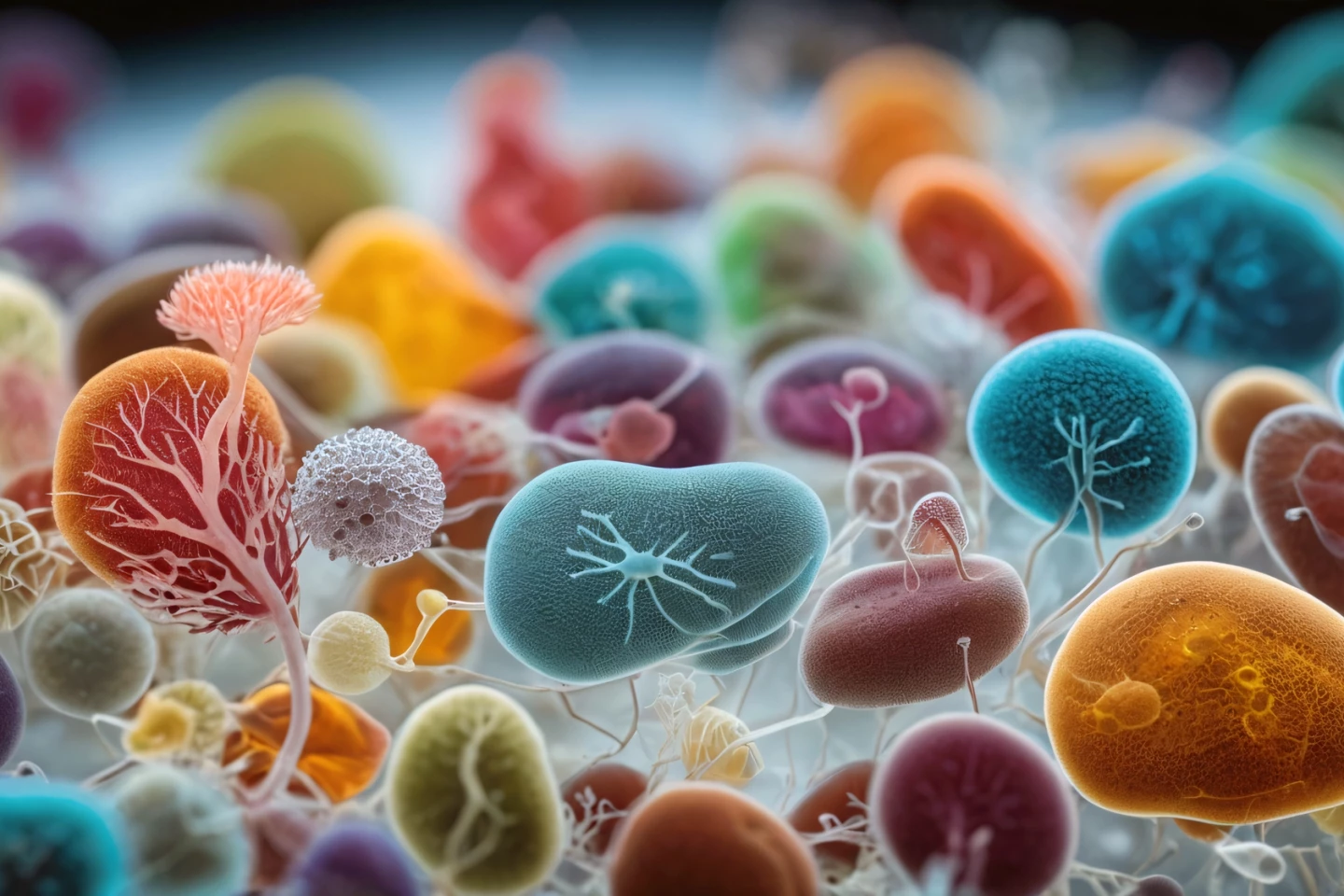Our gut microbes and genes are in constant conversation, shaping each other in ways that affect everything from immunity and inflammation to disease risk, according to new review of scientific evidence. It’s a partnership that could transform how we prevent and treat illness.
Thanks to an ever-increasing array of studies, we are learning more and more about the importance of the trillions of microbes that make up our gut microbiome and how, collectively, they can influence both mental and physical health.
Now, in a new review article, researchers at the University of Hawai’i at Mānoa (UH Mānoa) have investigated how gut bacteria can affect our epigenome – the chemical tags on DNA and RNA that turn genes on or off without altering the underlying genetic code.
“By understanding how gut microbes influence our genes, we can begin to imagine new ways to prevent disease and promote health in a way that gets us closer to personalized medicine,” said the study’s corresponding author, Alika Maunakea, PhD, a professor in UH Mānoa’s Department of Anatomy, Biochemistry, and Physiology.
As this was a review article, the researchers didn’t conduct original experiments. Instead, they synthesized and analyzed the findings from a large body of scientific literature across microbiology, genetics, and epigenetics. Their focus included mechanistic studies in animal models, especially germ-free vs bacteria-colonized mice, lab experiments on human cells and organoids, and emerging clinical trials using microbiome-targeted interventions. They reached two conclusions: one, that microbes influence host epigenetics; and two, that host epigenetics shape the microbiome.

The researchers found that the tiny organisms living in our gut don’t just help digest food, they can also influence how our genes behave. They do this not by changing our DNA, but by sending signals that switch certain genes on or off. Here’s how:
- They feed our gene machinery. Some gut bacteria make essential vitamins that our cells use as fuel to manage which genes are active. Without enough of these helpers, that energy-producing system doesn’t run as smoothly.
- They make chemical messengers. As they break down our food, microbes produce small molecules – including short-chain fatty acids (SCFAs), vitamins, and other small molecules – that travel through the body and act as gentle “nudges” to our cells, encouraging some genes to become more active and calming others down.
- They teach our immune system. By shaping how certain immune genes work, gut bacteria help our bodies learn the difference between friendly microbes and harmful invaders. This keeps inflammation in check and helps prevent immune system overreactions.
- They fine-tune inflammation. Some of these microbial signals help activate specific immune cells whose job is to reduce inflammation, which is key to keeping the gut (and the rest of the body) healthy.
In short, your gut microbiome acts a bit like a team of tiny biochemical coaches: they don’t rewrite your genetic code, but they do influence how it’s read and when certain plays are called.
The researchers also found that the relationship between us and our gut microbes isn’t one-way. Just as they influence how our genes behave, our bodies shape which microbes live and thrive inside us. Think of it as a two-way conversation, with both sides constantly adjusting to each other. Here’s how we hold up our end of the dialogue:
- We set the stage. The chemical “switches” that control how our genes work can make the gut more or less welcoming to certain microbes. A slight tweak in how our cells behave can tip the balance in favor of one type of bacteria over another.
- Our genes help decide who moves in. Some people’s DNA naturally encourages particular microbial species to grow. That’s one reason why everyone’s gut microbiome is unique.
- Our choices matter. Lifestyle factors like diet, exercise, sleep, and stress change our epigenetic patterns, and those changes ripple out to influence the microbial community within our bodies. For example, chronic stress can trigger chemical changes in our cells that lead to more “inflammatory” bacteria taking hold.
- We evolve together. As we age or our environment changes, our epigenetic landscape shifts. The microbes respond by reshaping their population, keeping the partnership dynamic and adaptable.

In other words, we’re not passive hosts for our gut microbes. Our bodies help choose and nurture the microbial mix living inside us, and that mix, in turn, keeps influencing our health.
Most of the studies the researchers reviewed and analyzed showed correlations, but didn’t fully explain how specific microbes caused epigenetic changes. This means we still don’t fully understand whether certain microbes cause these gene changes or are simply associated with them. Other limitations include that many findings came from mice or simplified cell cultures, which don’t fully replicate the complexity of human biology. Further, most studies involved limited populations. Epigenetic and microbiome profiles differ greatly across ethnicities, diets, and environments.
Although much still remains to be learned about the molecular details of this cross-talk between microbiome and epigenome, the review highlights the potential for microbiome-informed precision medicine. Mapping an individual’s microbiome and epigenome together could allow medical professionals to predict disease risk and tailor treatments – from personalized nutrition and immune therapies to epigenetically targeted cancer treatments.
Who knows? Based on these findings, it’s possible that, one day, your doctor might prescribe specific foods or probiotic strains to reset your epigenetic patterns and lower your risk of chronic diseases.
The study was published in the International Journal of Molecular Sciences.
Source: UH Mānoa







